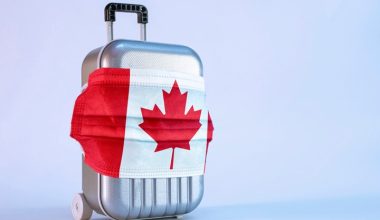To start your new life in Canada as a refugee, you’ll first need to qualify for refugee status. This means proving that you have a well-founded fear of persecution in your home country due to your race, religion, nationality, political opinion, or membership in a particular social group.
Once you’ve established your refugee claim, you can apply for permanent residence in Canada. This application process typically takes around 18 months.
To apply, you’ll need to:
- Submit an Application for Permanent Residence in Canada form along with supporting documents like your refugee claim acceptance letter, proof of funds, medical exams, and police certificates.
- Pay the necessary application fees which currently total around $550 CAD per adult. Fees can be reduced or waived if you can demonstrate financial hardship.
- Attend an interview. Most applicants are invited to an in-person interview to verify the information provided in the application. Be prepared to provide additional details and documentation to support your claim.
- Undergo health and security screenings. You’ll need to complete medical exams to screen for health conditions that could be a burden on Canada’s healthcare system. You’ll also go through background security checks.
- Prove you can support yourself financially. While refugee claimants can access government support, immigrants must demonstrate they can provide for basic needs like food, shelter, and clothing. Funds, job offers, or community support can be shown.
The Refugee Application Process Step-by-Step
To start a new life in Canada as a refugee, you’ll have to go through the application process. It may seem complicated, but by following these steps, you’ll be on your way to safety and freedom.
1. Apply for refugee status
First, you apply for refugee status. You can apply from inside Canada or at a port of entry. Submit Form IMM 0008, the Generic Application Form for Canada. You’ll have to provide information about yourself and why you need refugee protection.
2. Interview
If your application is accepted, you’ll have an interview with an immigration officer. Be prepared to share details about the persecution or human rights violations you faced. Having documents or evidence to support your claim will help.
3. Medical exam
You’ll undergo a medical exam to check that you are in good health. The exam typically includes blood tests, chest X-rays, and physical checkups.
4. Background check
The government will run background and security checks to verify your identity and check for any criminal records or security risks.
5. Decision
If your application is approved, you’ll become a permanent resident of Canada with most of the rights of citizens! You can then start building a new, safe life.
Settling in Canada: Tips for Refugees Starting a New Life
Here are some tips to help you adjust to life as a refugee and build a good foundation.
1. Find shelter and basic necessities
Your first priority should be securing housing, food, and necessities. Contact local refugee services for temporary shelter and assistance. Look for affordable housing options like apartments, basement suites, or shared housing. Apply for basic income assistance from the government if needed. Don’t forget essentials like a winter coat, boots, and other cold-weather gear.
2. Learn English or French
Canada’s official languages are English and French. Learn the local language where you settle to help you integrate into your community, find work, and navigate daily life. Enroll in free language classes, watch TV shows in your new language, read children’s books, and practice speaking with others.
3. Build your community
Seek out local immigrant and refugee community groups and services to help combat isolation and make new friends. Places of worship, community centers, and cultural associations are all great for meeting others from similar backgrounds. Participate in local community events and volunteer activities as well to practice your language and social skills in a supportive environment.
READ ALSO- How to Get Hired as a Chef in Canada
Conclusion
Making a home in a new country with an unfamiliar culture can be challenging. Connecting with others who share your experiences, learning practical skills, and taking advantage of resources available to new refugees will help you feel more at home in Canada.
Wait for approval code to Appear






